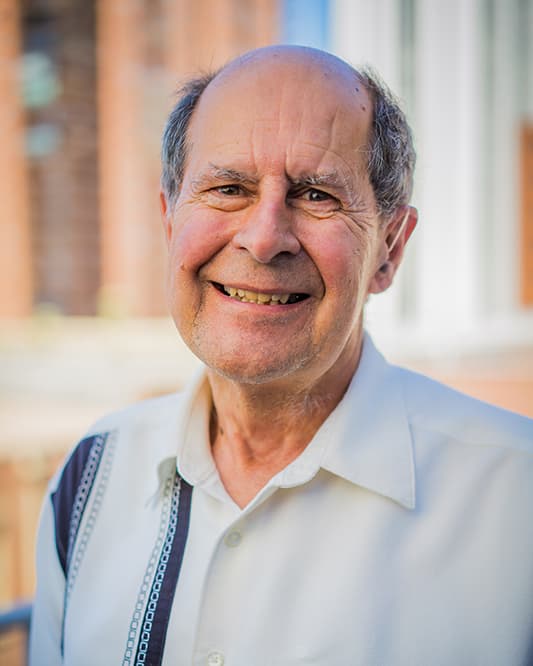Faculty Directory

Alan Davis PhD
Professor Emeritus
- School of Education & Human Development
I grew up west of Denver between Wheat Ridge and Golden, riding my horse in the Westernaires precision riding team, and attending Wheat Ridge High School. I went on a high school tour of Eastern Europe and Russia the summer after my sophomore year of high school, and became hooked on travel, languages, and learning how other people thought and lived. I taught English in the Philippines, studied Russian at the University of Moscow, lived with a family in Mexico City, coordinated a summer school program for migrant workers in Burlington, Colorado, and became proficient in Spanish and Russian. I got a job teaching 8th and 9th grade math and language arts to bilingual students in San Luis, Colorado, and that convinced me that I wanted a lifelong career in teaching. I got a teaching certificate and a Master's in social studies teaching at Harvard, and joined Ramah Navajo High School (now Pine Hill School), the first Indian controlled secondary school in the US. Later I taught social studies at Columbine High School. After nine years of teaching middle school and high school, I wanted to conduct research on the inequities in educational processes and outcomes. I went to CU Boulder and got a PhD in Research and Evaluation Methodology.
I am very interested in how students learn, and what good teachers do, and I am especially interested in these questions when they involve adolescents and young adults who are actively working to define who they are, what they want, and what they will pay attention to. Learning is not one thing: learning to play the violin is fundamentally different from learning to read or to think mathematically. And while learning always involves the brain and interactive processes, social contexts at different levels of scale are key, from moment-to-moment interactions we can analyze on video recordings, to social and cultural dynamics of the classroom, school, home and neighborhood, to larger distributions of wealth, income, and power. Methods of conducting research in education and human development involve making clear the relationship between the processes and contexts we believe matter, and the technology available to us to measure, document, test and refine our claims about these complex relationships. My job as professor of research methods is to prepare researchers and practitioners to contribute to and critically apply this knowledge.
Areas of Expertise
- Methods of researching multi-level social systems, hierarchical linear modeling
- Ethnographic methods of research
- High school dropout, school transitions
- Personal narrative, life trajectories, digital storytelling
- Immigrant experience, educational environments for English language learners
Education, Licensure & Certifications
- BA Pomona College, Economics
- MAT Harvard University, Social studies teaching
- MA Western Michigan University, Educational Program Evaluation
- PhD, University of Colorado Boulder, Research and Evaluation Methodology
Awards
Lynn K. Rhodes Faculty Award 2017
Affiliations
- Editorial Board, JESPAR (Journal of Education of Students Placed at Risk)
- Member, Division G (Social contexts of education), American Educational Research Association
- Member, Adolescence SIG, AERA
- Member, Urban Learning and Teaching SIG, AERA
Faculty by Program
- Applied Behavior Analysis
- ASPIRE to Teach
- Counseling
- Couple & Family Therapy
- Culturally & Linguistically Diverse Education
- Early Childhood Education
- Human Development and Family Relations
- Leadership for Educational Organizations
- Learning Design & Technology
- Learning, Developmental & Family Sciences
- Literacy Education
- Research & Evaluation Methods
- School Psychology
- Special Education
- STEM Education
- Teaching